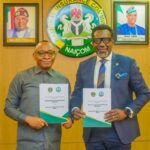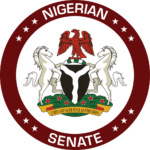By Ijeoma Olorunfemi
Some educationists say that the internet and social media in spite of their positive impacts, when abused, negatively influenced students’ academic performance and reduced the quality of education in the country.
They said this in separate interviews with the News Agency of Nigeria (NAN) in Abuja.
They told NAN that the widespread use of social media and its misuse had made students become lazy and pay less attention to their studies.
Sadiq Mohammed, Associate Professor, Department of Agricultural and Bio-resources Engineering, Federal University of Technology, Minna, said social media had encouraged examination malpractices among students.
Mohammed said that social media, Artificial Intelligence, and other emerging technologies, though meant to help developing societies, were being misused, particularly in the education sector.
“With the way our education sector is going, we seem doomed because many students go to `magic centres` to write their examinations.
“You see a lot of them leaving the city centres to villages where pre-answered scripts will be passed around in exam halls.
“You realise that they gain admission into the university with fantastic results but along the line they find it difficult to measure up.
“With the coming of AI, most students now relax, they spend more time on their phones, using different applications to write examinations,’’ he said.
According to him, the government needs to empower the education sector on how to checkmate the misuse of AI by students.
Mohammed said that there was a need to implement measures that will guarantee the integrity of the education system.
He said this could be done by scrutinising research papers and addressing the prevailing challenge of copy-and-paste.
He called for an education system that would instil academic discipline among learners.
Mrs Judy Eke, a retired principal, said that it was unfortunate that many parents were encouraging their wards to indulge in examination malpractice through social media.
She said in some instances parents finance such anti-academic behaviour and even provide data for their wards to access the internet for the purpose of exam fraud.
“Parents too are helping to spoil the children by giving them money to go and register for examinations in faraway villages.
“It is so bad that even the educated ones hire machineries to write exams for their children.
“These practices are not helping the students; they no longer value hard work.
“Social media generally is helping to avoid hard work. They believe that every answer that comes from the internet is correct,’’ Eke said.
She further a situation whereby emphasis was placed more on academic qualification and grades instead of capability was encouraging reliance on the internet to perpetrate exam malpractices.
Eke said it was time for the government to declare a state of emergency in the education sector.
Mr Adebayo Adewole, a teacher, said that social media had created access to information, learning opportunities, global connectivity but was also a source of distraction for many students.
According to him, many social media contents misinform the public, especially students.
He said addiction to social media was also affecting students’ performance in both internal and external exams.
“Students spend up to four hours online, yet struggle to commit 30 minutes to their books.
“This is unlike in the past, when students were more focused. Today’s youth are more interested in social media trends than in their education,’ he said.
Adewole added that social media had encouraged cybercrime, exposed the young people to immoral behaviour and urged the authorities to regulate the social media space.
“The educational sector should also help in encouraging students to study the hard copy instead of the soft copy because students no longer study their books; they rely more on the internet.
“You see teachers give students assignments that ordinarily should be done with the aid of the textbook, but you see them going on the internet, making use of AI to do the assignments,’’ he said. (NAN)
Edited by Uche Anunne












